
Talking Heads were an American rock band that formed in 1975 in New York City. The band was composed of David Byrne, Chris Frantz (drums), Tina Weymouth (bass) and Jerry Harrison. Described as "one of the most critically acclaimed bands of the '80s," Talking Heads helped to pioneer new wave music by combining elements of punk, art rock, funk, and world music with an anxious, clean-cut image.

Another Green World is the third solo studio album by Brian Eno, released by Island Records on 14 November 1975. The album marked a transition from the rock-based music of Eno's previous releases toward the minimalist instrumentals of his late 1970s ambient work. Only five of its fourteen tracks feature vocals, a contrast with his previous vocal albums.

Ambient 1: Music for Airports is the sixth studio album by Brian Eno, released in 1978 by Polydor Records. It is the first of Eno's albums released under the label of ambient music, a genre of music intended to "induce calm and a space to think" while remaining "as ignorable as it is interesting". While not Eno's earliest entry in the style, it is credited with coining the term.

Remain in Light is the fourth studio album by the American rock band Talking Heads, released on October 8, 1980, by Sire Records. Produced by Brian Eno, his third album with the band, the audio was recorded at Compass Point Studios in the Bahamas and Sigma Sound Studios in Philadelphia during July and August 1980.
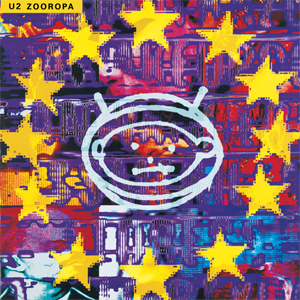
Zooropa is the eighth studio album by Irish rock band U2. Produced by Flood, Brian Eno, and the Edge, it was released on 5 July 1993 on Island Records. Inspired by the band's experiences on the Zoo TV Tour, Zooropa expanded on many of the tour's themes of technology and media oversaturation. The record was a continuation of the group's experimentation with alternative rock, electronic dance music, and electronic sound effects that began with their previous album, Achtung Baby, in 1991.

Uncle Anesthesia is the fifth studio album by the American band Screaming Trees. It was released in 1991 via Epic Records. It includes three of the four tracks from the band's previous Epic release, Something About Today.

Laid is the fifth studio album by British rock band James. It was released on 27 September 1993 through Fontana Records. The album's sound, which is "stripped-down" compared to their prior releases, was inspired by their recent experience touring as supporting act to Neil Young. Enlisting Brian Eno as producer, James recorded for six weeks at The Windings in Wrexham, Wales, and Real World Studios in Box, Wiltshire. The sessions also resulted in the experimental sixth studio album Wah Wah (1994). Laid is a folk and pop rock album that was reminiscent of their earlier releases with its atmosphere and minimal arrangements.

River of Souls is the twelfth album by American singer-songwriter Dan Fogelberg, released in September 1993. The album features a variety of genres ranging from Celtic, Brazilian, country, and African soft rock. It received mostly positive reviews from fans and critics alike, praising the instrumentation and vocals. However, some of the song's topics, which included war and politics, were not well received.
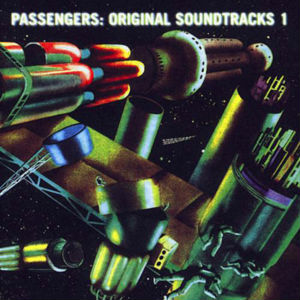
Original Soundtracks 1 is a studio album recorded by rock band U2 and Brian Eno under the pseudonym Passengers as a side project. Released on 6 November 1995, the album is a collection of songs written for mostly imaginary films. Owing to Eno's involvement as a full songwriting partner and the album's experimental nature, the moniker "Passengers" was chosen to distinguish it from U2's conventional albums. It was commercially unnoticed by the band's standards and received generally mixed reviews. Guest musicians on the record included Italian opera singer Luciano Pavarotti and producer Howie B, who would co-produce U2's following album, Pop (1997).

Another Day on Earth is the twenty-second solo studio album by Brian Eno, released on 13 June 2005 in the UK and Europe through Hannibal Records, and on 14 June 2005 in the US. The album predominantly recorded and mixed on Macintosh software, using Logic Pro, over a period of four years.

Geoffrey Oryema was a Ugandan musician. In 1977 after the murder of his father, Erinayo Wilson Oryema, who was a cabinet minister in the government of Idi Amin, he began his life in exile. At the age of 24, and at the height of Amin's power, Oryema was smuggled out of the country in the trunk of a car.

"Numb" is a song by rock band U2. It is the third track from their 1993 album Zooropa and was released in June 1993 as the album's first single. The song features a monotonous mantra of "don't" commands spoken by guitarist the Edge amidst a backdrop of various sound effects and samples. The noisy composition and lyrical concept for "Numb" were inspired by the theme of sensory overload, which had prominently been incorporated into the Zoo TV Tour. Lead singer Bono and drummer Larry Mullen Jr. provided backing vocals on the track.
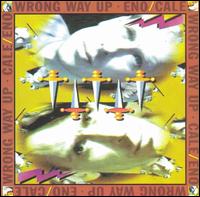
Wrong Way Up is the sole collaborative studio album by Brian Eno and John Cale, originally released on October 5, 1990 on Opal and Warner Bros. Records. The album sits between the electronic, prog-rock and art rock genres and features some of both Eno and Cale's most mainstream work.
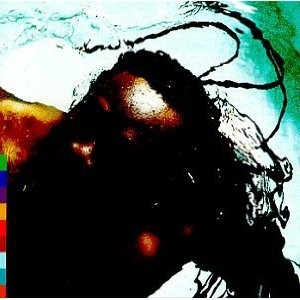
Beat the Border is the second album by the Ugandan musician Geoffrey Oryema, released in 1993. Oryema supported the album by playing the 1993 WOMAD Festival.

"Strange Overtones" is a song recorded by David Byrne and Brian Eno, written by the duo with Leo Abrahams. It was released on August 4, 2008 by means of free download as the lead single from Byrne's and Eno's second collaborative studio album Everything That Happens Will Happen Today (2008). "Strange Overtones" is an uptempo electronic gospel song, and its lyrics explore the themes of humanity overcoming technology that are central to the album. "Strange Overtones" was well received by critics, and was downloaded 40,000 times in its first three days of release.

Brian Peter George Eno, also known by the mononym Eno, is an English musician, composer, record producer and visual artist. He is best known for his pioneering contributions to ambient music and electronica, and for producing, recording, and writing works in rock and pop music. A self-described "non-musician", Eno has helped introduce unconventional concepts and approaches to contemporary music. He has been described as one of popular music's most influential and innovative figures. In 2019, he was inducted into the Rock and Roll Hall of Fame as a member of Roxy Music.

Friday Night in America is a studio album by progressive bluegrass band New Grass Revival, released in 1989. The album includes the single "Callin' Baton Rouge", the band's only Top 40 hit on Hot Country Songs. Both it and "Do What You Gotta Do" were later released as singles by Garth Brooks: the former in 1993 from his album In Pieces, and the latter in 2000 from his album Sevens. The band promoted the album by touring with Emmylou Harris.
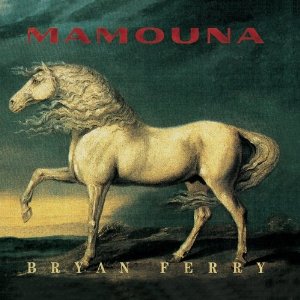
Mamouna is the ninth solo album by Bryan Ferry, released on Virgin Records first on 31 August 1994 in Japan and then on 5 September in the UK. It was Ferry's first album of original material in seven years and he spent six years writing and recording it, under the working title Horoscope. The album peaked at number 11 on the UK Albums Chart.

(No Pussyfooting) is the debut studio album by the British duo Fripp & Eno, released in 1973. (No Pussyfooting) was the first of three major collaborations between the musicians, growing out of Brian Eno's early tape delay looping experiments and Robert Fripp's "Frippertronics" electric guitar technique.

Rock On! is an album by the American musician Del Shannon, released posthumously in 1991.




















